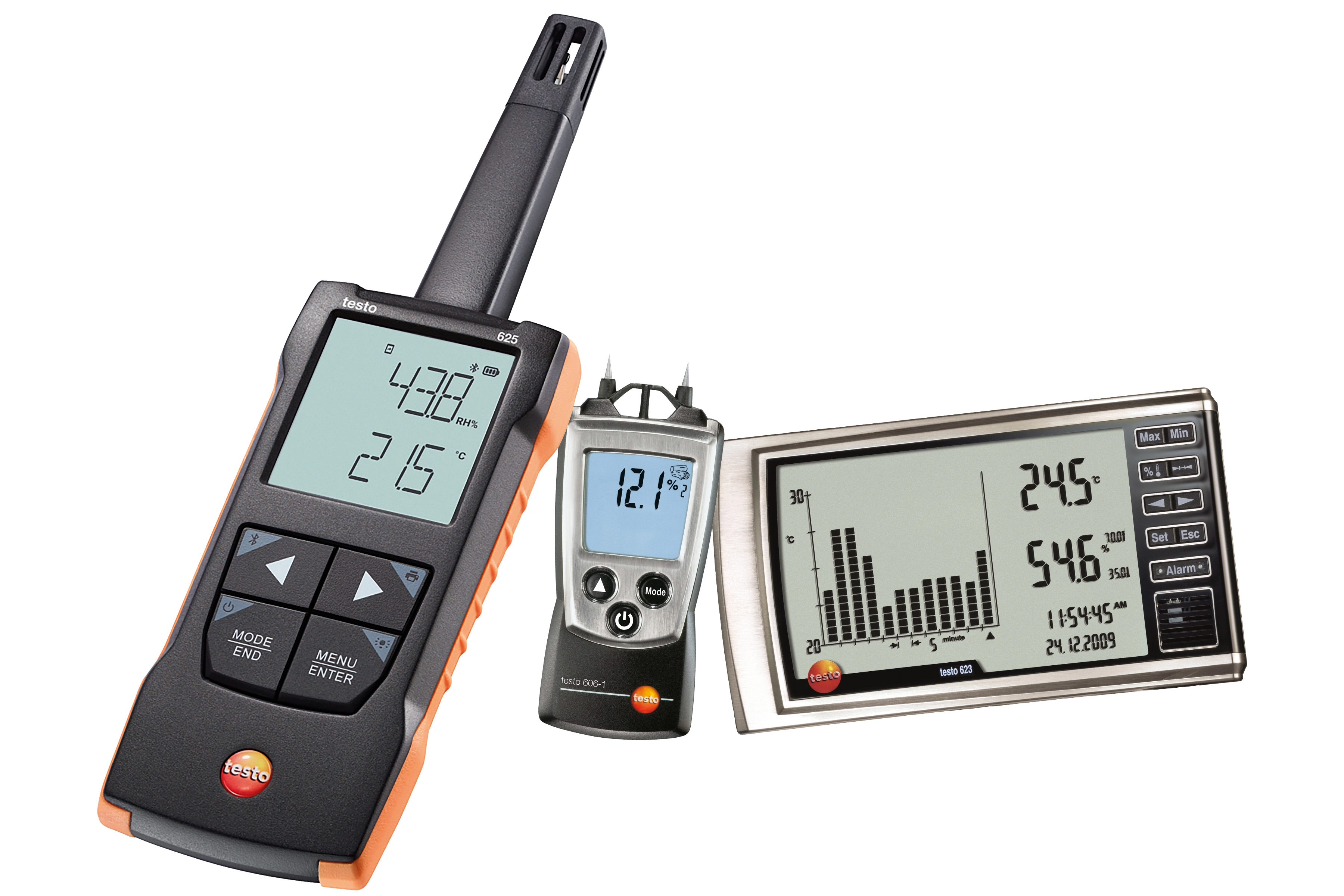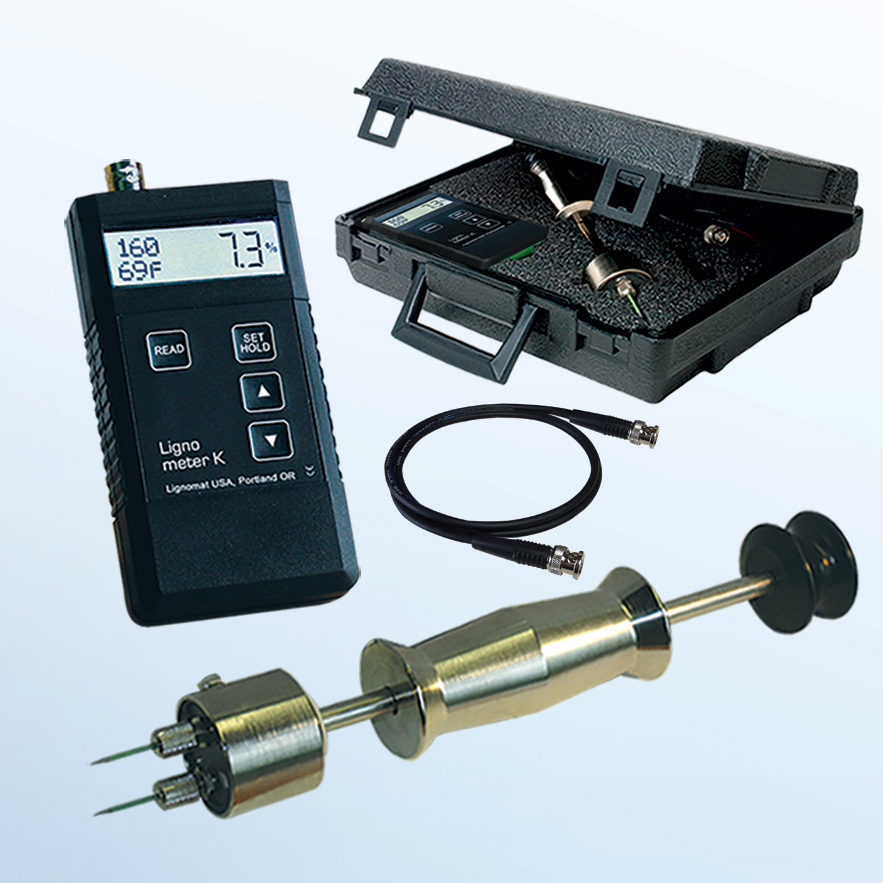The Ultimate Guide to Selecting the Right Moisture Meter for Your Requirements
The Ultimate Overview to Moisture Meters: A Comprehensive Summary and Exactly How They Can Conserve You Money
In the world of building maintenance, building, and various sectors, the relevance of precisely measuring wetness degrees can not be overstated. Dampness meters offer as vital tools in spotting and checking moisture web content in products, aiding in protecting against costly problems and ensuring the high quality of products. Comprehending the subtleties of different types of dampness meters, their applications, and the possible cost-saving benefits they offer can be a game-changer for professionals and services alike. Uncovering exactly how these gadgets can not just enhance processes yet likewise add to economic cost savings is a journey worth embarking on.
Kinds of Moisture Meters
One usual kind is the pin-type dampness meter, which determines the electric resistance between two pins placed into a product. Pinless dampness meters, on the various other hand, use electro-magnetic sensor plates to scan a larger location without creating damages to the material's surface.
Infrared moisture meters gauge the thermal residential properties of a product to establish its wetness content non-invasively, making them useful for applications where pin or pinless meters may not be suitable. Understanding the various types of wetness meters available can aid industries select the most appropriate tool for their details moisture dimension needs.

Benefits of Utilizing Moisture Meters

Furthermore, using wetness meters can bring about boosted power effectiveness. By identifying areas with high dampness degrees, such as leaks or poor insulation, changes can be made to enhance power conservation and minimize utility prices. In farming setups, wetness meters play an important role in enhancing plant returns by enabling farmers to monitor dirt dampness degrees and make educated irrigation decisions. Generally, the benefits of utilizing dampness meters cover across numerous sectors, offering cost-effective options and promoting far better top quality control methods.
Exactly How to Select the Right Moisture Meter
Choosing the ideal dampness meter involves taking into consideration key elements such as material compatibility, dimension range, and calibration precision. When selecting a dampness meter, it's vital to make sure that the meter appropriates for the particular material you will be testing. Various materials have differing electrical residential properties that can affect moisture analyses, so selecting a meter designed for your product is crucial for exact outcomes. In addition, take into consideration the measurement variety of the moisture meter. Ensure that the meter can find dampness levels within the range needed for your applications. Calibration precision is an additional critical element to remember (Moisture Meter). Choose helpful site a dampness meter with reputable calibration to ensure consistent and exact analyses. Some meters may call for regular calibration modifications, so understanding the calibration procedure is essential. By carefully reviewing these aspects, you can select a dampness meter that fulfills your requirements and offers accurate dampness measurements for your tasks.
Appropriate Strategies for Moisture Meter Use
To ensure precise dampness analyses and make the most of the performance of a moisture meter, utilizing appropriate strategies is necessary. When utilizing a pin-type moisture meter, put the pins or probes into the product being examined until they make full get in touch with. Guarantee the pins are perpendicular to the surface to obtain the most precise analysis. For pinless dampness meters, hold the tool flat versus the material and relocate gradually to cover the whole location for an average analysis. It's essential to adjust the dampness meter according to the material being checked to improve precision. Take several analyses throughout the surface and typical them out for a much more reliable result. Furthermore, make sure that the material see this being checked is accustomed to the setting to protect against manipulated analyses. Routine maintenance of the moisture meter, such as cleansing the pins or sensing unit, is also essential to make certain accurate and regular analyses. By following these appropriate techniques, individuals can rely upon their moisture meter to give reliable dampness degrees, aiding in preventing expensive damage or making sure high quality in different applications.

Cost Savings Via Moisture Meter Applications
How can the calculated utilization of moisture meters lead to substantial cost savings across numerous markets? In the farming sector, dampness meters aid in figuring out the optimal time for harvesting crops, avoiding over-drying or excess wetness that can affect the last item's quality.

Furthermore, in the food handling market, wetness meters are crucial for checking item quality and making sure compliance with safety and security regulations. By accurately gauging wetness material in foodstuff, suppliers can prevent spoilage, preserve quality, and decrease waste, resulting in significant price financial savings. Generally, the calculated application of moisture meters is a beneficial investment that can result in significant cost reductions and boosted effectiveness throughout various industries.
Conclusion
In conclusion, moisture meters are useful devices for determining and finding wetness levels in different materials. By using the appropriate moisture meter and following proper techniques, individuals can properly protect against expensive problems created by excess wetness.
Wetness meters serve as vital devices in discovering and keeping track of moisture material in materials, aiding in protecting against costly damages and making certain the quality of items. Infrared dampness meters determine the thermal residential or commercial properties of a material to determine its moisture content non-invasively, making them beneficial for applications where pin or pinless meters may not be suitable.Dampness meters offer important advantages in precisely keeping track of and evaluating dampness degrees in varied materials and settings. In farming setups, moisture meters play a crucial role in optimizing plant returns by allowing farmers to keep track of soil wetness levels and make informed watering decisions.In conclusion, wetness meters are beneficial devices for determining and finding wetness degrees in numerous products.